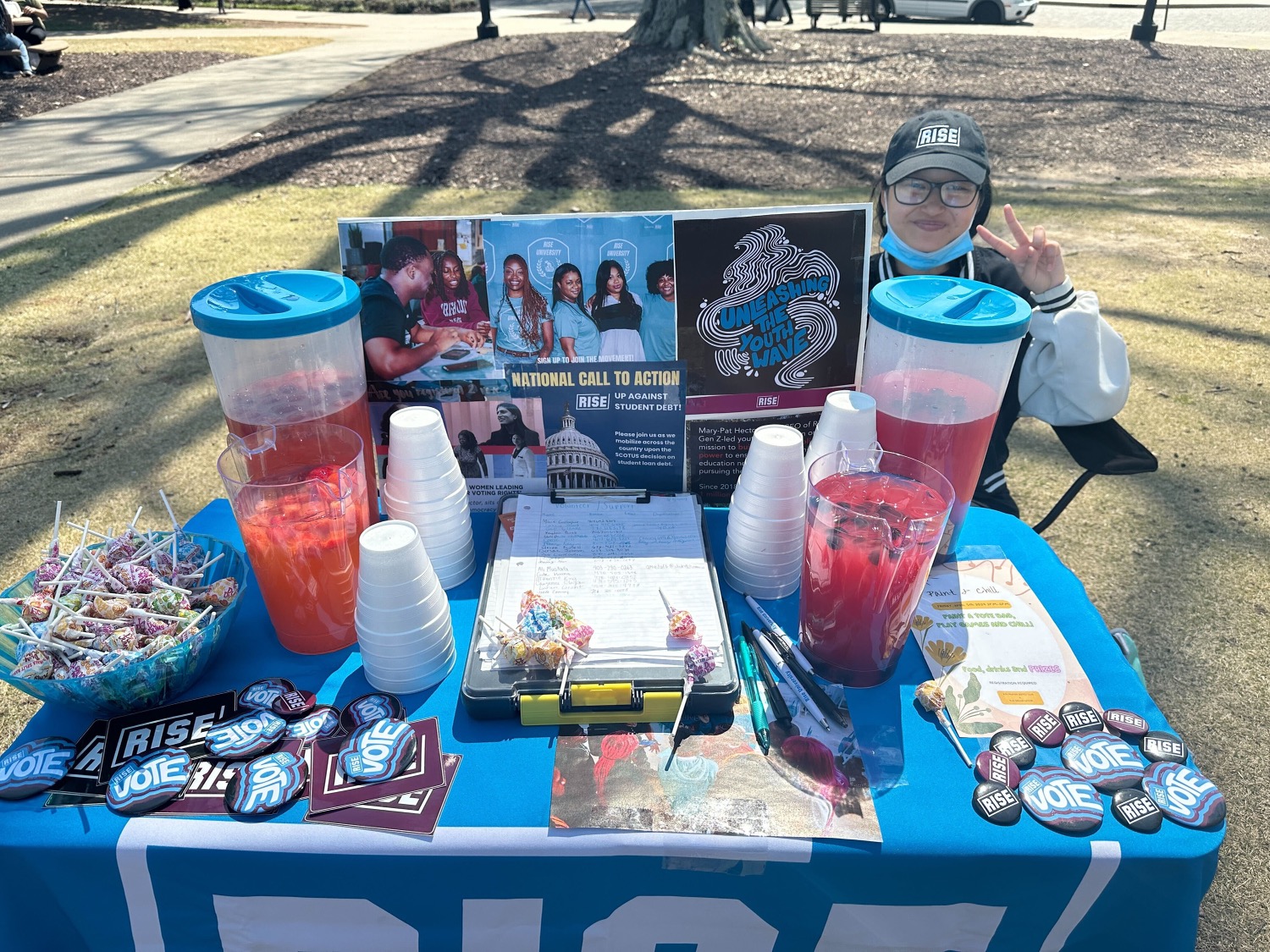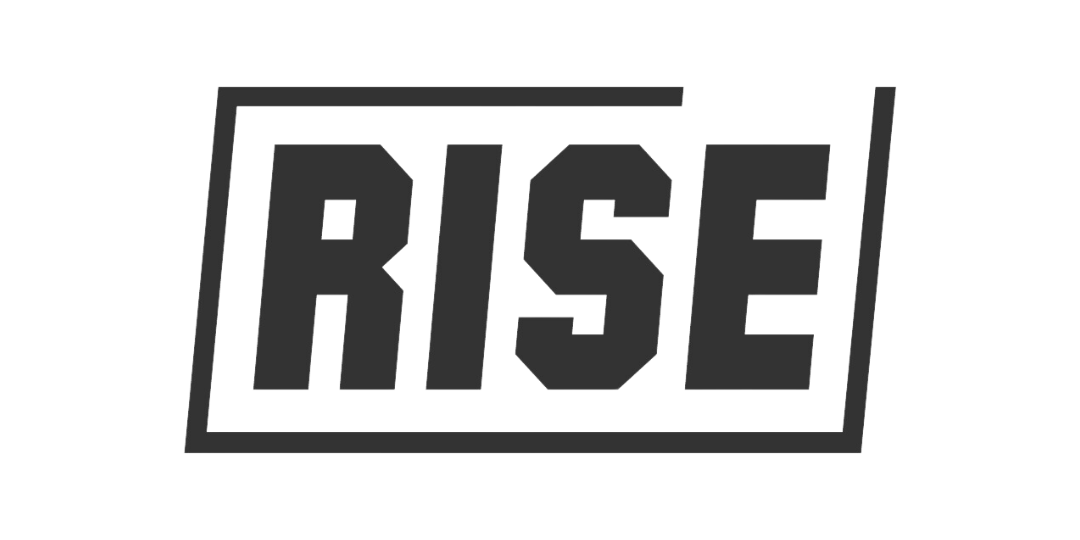By Ebony Brown, Rise Georgia State Director
Can you imagine walking into a voter precinct – fully prepared to make your vote count – only to find your name had been mistakenly removed from the voter roll in your community? This will be an unfortunate reality for many voters across the nation, particularly students and people of color, as many states are calling for the implementation of voter purges under the guise of voter fraud protection leading up to the 2024 Presidential election. States have even gone so far as to push for ‘voter challenges’ which would allow any citizen to question another citizen’s eligibility to vote. In Georgia, one man has created his own EagleAI tool, to assist ordinary citizens in urging election officials to cleanse voter rolls. What could go wrong?
These examples are just the tip of the iceberg, with many lawsuits, bills, and other attacks centered on hindering voting rights of students and people of color on an uptick, particularly in southern states.
Below are trends and measures to be on the lookout for in your state:
Voter ID Laws: Many states have implemented voter identification laws that require voters to present specific forms of identification at the polls. Critics argue that these laws disproportionately affect students and people of color, who may be less likely to have access to the required forms of ID.
Voter Purges: Some states have engaged in voter purges, where voter rolls are periodically cleaned to remove inactive or ineligible voters. Critics argue that these purges often result in the removal of eligible voters, particularly students and people of color who may be more likely to move frequently or have common names that are mistakenly flagged as duplicates.
Reduced Early Voting: Several states have passed laws to reduce the number of early voting days or restrict early voting hours, which can disproportionately impact students and people of color who may have less flexible work schedules or rely on public transportation to get to the polls.
Polling Place Closures: There have been instances of states closing polling places, particularly in predominantly minority neighborhoods, which can result in longer lines and reduced access to voting for people of color.
Gerrymandering: The drawing of electoral districts in a way that dilutes the voting power of minority communities has been a long-standing issue. Gerrymandering can result in the manipulation of electoral boundaries to favor one political party or to diminish the influence of certain racial or ethnic groups.
Restrictions on Mail-In Voting: Some states have imposed stricter requirements for voting by mail, such as requiring an excuse to vote absentee or implementing signature matching requirements. Critics argue that these restrictions disproportionately impact students and people of color, who may face barriers to accessing traditional polling places or be more likely to rely on mail-in voting.
Targeted Voter Suppression Tactics: There have been reports of targeted voter suppression tactics, such as misleading robocalls providing incorrect polling information or voter intimidation efforts aimed at discouraging people of color from voting.
Specific state by state examples of these voting and education related measures that will disproportionately affect students and people of color across the United States include:
- In North Carolina, a federal appellate court has dismissed an emergency challenge to North Carolina’s Republican-drawn legislative map, ensuring that the upcoming 2024 elections will proceed under the contested lines. Critics, including Democrats and voting rights advocates, argue that the late 2023 map was designed to diminish Black representation
- In Georgia, Republican lawmakers passed a bill allowing the removal of voters from the rolls through eligibility challenges and it is awaiting Governor Kemp’s decision. Critics argue that voter purges misuse data and disenfranchise legitimate voters. Voter challenges, a process allowing citizens to question an individual’s eligibility to vote, have been increasingly utilized in Georgia, often relying on impersonal data sources like the National Change of Address list.
- Relatedly, in Georgia, an individual has launched a software program called EagleAI Network, to assist ordinary citizens in urging election officials to cleanse voter rolls.
- In Pennsylvania, a federal appeals court panel ruled that a requirement for voters to accurately hand write dates on the outside envelopes of their mail-in ballots does not violate civil rights law, overturning a previous lower court ruling. The divided 3rd U.S. Circuit Court of Appeals upheld the enforcement of this technical mandate, which led to the invalidation of thousands of votes in the 2022 election.
- In Alabama, civil rights groups are challenging a new voting law in a lawsuit against state officials, arguing that S.B. 1, a newly enacted law that criminalizes individuals and organizations from aiding voters in submitting absentee ballots, infringes upon their First Amendment rights by criminalizing political activities integral to their core values, such as supporting absentee Alabama voters.
These are some, but not all of the recent attacks on voting rights sweeping the country that will particularly impact students, people of color and low income individuals. These measures and tactics are often the subject of legal challenges and political debate, with proponents arguing they are necessary to prevent voter fraud and ensure the integrity of elections, while opponents contend they are designed to suppress the votes of marginalized communities.
It’s important to stay informed about developments at the state level and advocate for policies that promote equitable access to the ballot box for all citizens. That’s why Rise continues to work actively on campus to make sure students know where, when, and how to vote, despite all the obstacles being put in place to deter the youth vote. Follow us on social media to stay up to date on the latest voting rights updates and education opportunities from Rise.


